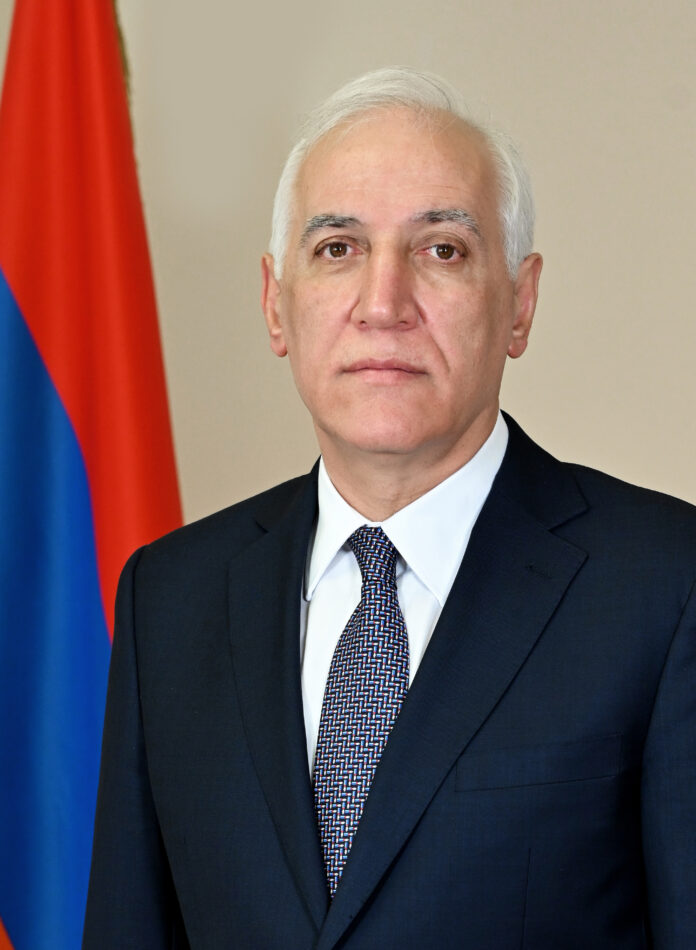WATERTOWN — The position of president of the Republic of Armenia has largely been a ceremonial one after 2018, when the prime minister and National Assembly became the main wielders of power as the result of a change in the Armenian Constitution. Nevertheless, the president is the head of state and obliged to uphold compliance with the Constitution, as guarantor of the latter. The current president, 64-year-old Vahagn Khachaturyan, assumed office on March 13, 2022. He provided some insights into his post and his work during a May 18 interview.
The first president to hold office in the new parliamentary governmental system, Armen Sarkissian, resigned in January 2022, claiming that the constitution did not give him enough powers. During his presidency, he called for increasing the powers of his office, and after the 2020 Karabakh war pushed for Prime Minister Nikol Pashinyan’s resignation and the creation of a government of national accord. However, the Organized Crime and Corruption Reporting Project (OCCRP) discovered Sarkissian had dual citizenship a few years before becoming president, which contradicts the stipulations of the Constitution. Sarkissian resigned about a month after the OCCRP sent him a letter asking about this, leading to speculation that this may have been the immediate spur.
Foreign Relations
Unlike his predecessor, Khachaturyan declared that he is in harmony with the work of the current government headed by Prime Minister Nikol Pashinyan, and that in general, the president as the representative of the Armenian republic must not express views contrary to that of the rest of the government on foreign relations. He said, “it must be thus for somebody in my position. A situation existed in the past, where different discussions took place in this [presidential] building, the governmental building and the foreign ministry building, which caused great damage to the Republic of Armenia…I am that man who carries out the state foreign policy accepted by the government of the Republic of Armenia.”
More specifically, he said he participates in various foreign negotiations in agreement with the Armenian foreign and prime ministers, for which he receives the necessary authorization from the latter officials, as per the current state constitution. As a representative of the state, he said, “I have the possibility to speak on particular issues, to speak or meet with individuals, to transmit or deliver those approaches, those messages that we wish to deliver.”
His role appears wide-ranging. He said, “Let me tell you, the president of the republic and this institution, with its international contacts, has fairly extensive possibilities to convey all those concerns which exist connected with our country, with Mountainous Karabakh, with the defense of our borders, and, in general, with the domestic and foreign policy of Armenia.”









